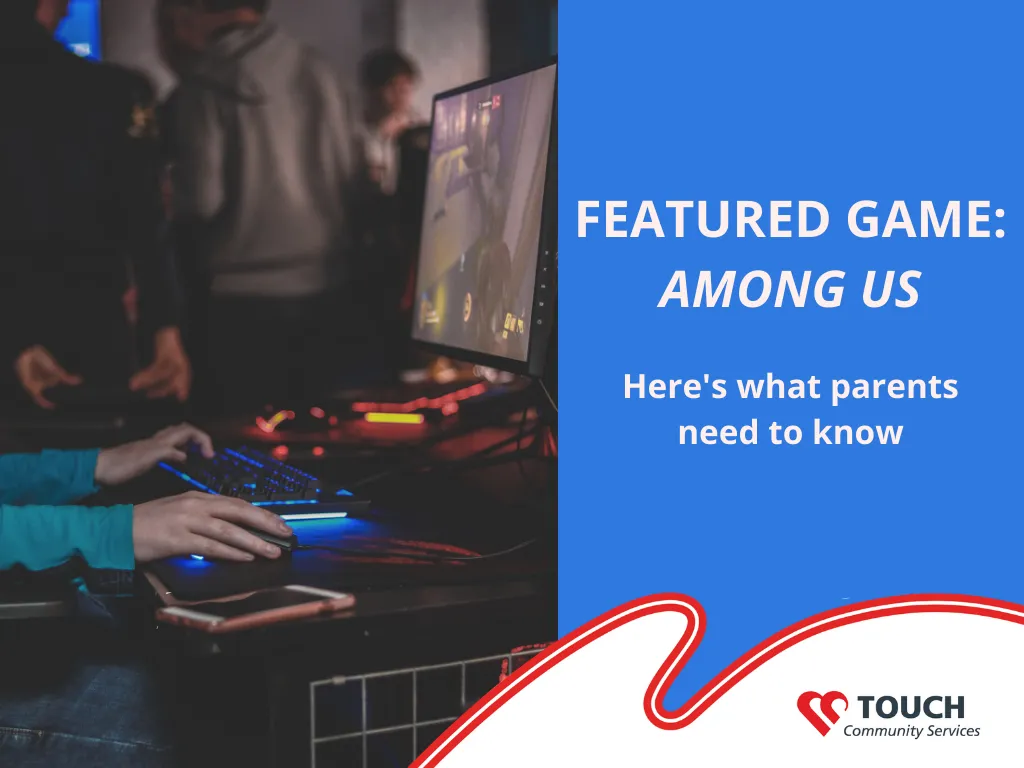Back to Tips & Articles
Among Us - Pointers for Parents of Children Playing the Game
Tips & Articles
Parenting Support
19 May 2021
What online games will your child be playing this June holidays? Read on to learn about one of the top games at the moment, Among Us, and what parents should take note of.

The June holidays are coming up and you may find your child spending more time playing online games.
There are many games available online but one of the more popular ones amongst children and youths at the moment is Among Us. In fact, it was awarded the title of Best Mobile Game of 2020 at The Game Awards last year. Its popularity is still rising and the game will be released for Xbox One and the Xbox Series X/S this year.
In this article, TOUCH Parenting explains what Among Us is about and some things that parents of children playing the game should take note of.
What is Among Us?
Among Us is an online multiplayer social deduction game. The game takes place in a space-themed setting, where players each take on one of two roles, most being Crewmates, and a predetermined number being Impostors.The goal of the Crewmates is to identify the Impostors, eliminate them, and complete tasks around the map. The Impostors' goal is to covertly sabotage and kill the Crewmates before they complete all of their tasks. Players suspected to be Impostors may be eliminated via a plurality vote, which any player may initiate at any time. Crewmates win if all Impostors are eliminated or all tasks are completed; Imposters win if there is an equal number of Impostors and Crewmates, or if a critical sabotage goes unresolved.
For comparison, Among Us is very similar to the games that most of us played in real life, in a group setting, such as “Murderer” or “Polar Bear”. The main differences in Among Us are:
1. It is played on an online platform
2. It can be played with friends and online strangers (public platform) (Up to 10 players)
3. It is more engaging and sophisticated
What should parents consider?
As the purpose of the game is to “connive, scheme and manipulate” to get your way, children need to be able to draw the line between the virtual and real world. It is important for children to recognise that being conniving, scheming and manipulative is not something to be encouraged in a real-life setting.Parents can ask their children how they feel when they are being lied to during the game – do they feel betrayed, cheated, upset etc. Parents can also guide their children in processing how they feel when they succeed in “bluffing” their way through.
How can parents manage their children’s gameplay frequency and timing?
As the gameplay works by rounds, it is good to negotiate and plan with your child how much they can play by duration and by rounds. It is also important to identify where your child is in the game (e.g. a low-risk waiting room or a high-risk location) so you will know when to get their attention if you need to get them to stop or listen to you.Use of multiple devices
There are features for communicating in the game, such as, in-game texting. However, your child may use or request for a separate device to communicate with their friends whom they are playing with. This communication is usually through voice calls, such as through group conference calls using Whatsapp call, Facetime, Zoom etc. Such platforms allow them to discuss strategies and communicate more easily as compared to texting in-game, and makes interaction more fun and exciting.What else can parents do?
Parents, it will be great if you could spend some time to play the game with your child, at least at the start of their gaming experience. You can also help them navigate the game, controls, and listen in to how they communicate with their friends, and process any issues that may crop up after the session.Remember, gaming is not harmful for children as long as they know how to approach it in a responsible and healthy way.
Have any questions on parenting or want to find out more about our evidence-based parenting programmes? Contact TOUCH Parenting at parenting@touch.org.sg today!
TOUCH Parenting aims to strengthen parent-child relationships by providing parents with relevant parenting resources through every stage of their parenting journey. It conducts informative talks and workshops which empower parents with knowledge on preparing for and raising a new-born, navigating the digital age with their child, parent-child communication, and nurturing resilient children and youths. It is also appointed by the Ministry of Social and Family Development as the Parent Support Provider (PSP) for Primary and Secondary schools in Singapore.


